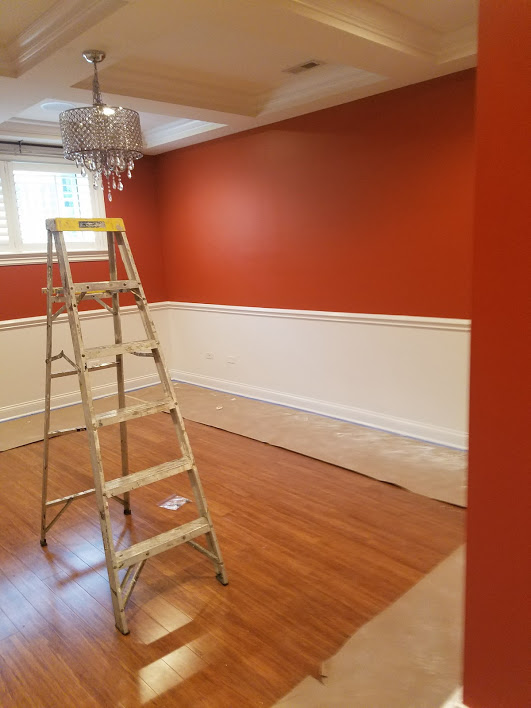
In business since 1990
Free estimates
Emergency services offered
"It went very well, he was able to do more than I expected and I was very pleased."




In business since 1990
Free estimates
Emergency services offered
"It went very well, he was able to do more than I expected and I was very pleased."

In business since 2000
"First of all, we are happy with the finished product of our master bathroom and walk-in closet. We are NOT happy with the owner of this business and his handling of our project. Jeff took time to design our space over several meetings. He promised that he would be available to choose tile/granite/light fixtures/plumbing fixtures whenever we needed him. Timeline was discussed with a 6 week from contract start and a project time of 3 weeks. Permit submission was done by myself with plans drawn by Jeff. We failed the permit process with 14 items that were not addressed due to insufficient drawings. Additional time/effort was required by Jeff and us to meet the requirements to meet code, which pushed our project back several weeks. We also paid more for the project due to Jeff needing to insure his workers for our village (a cost he should have known upfront). With new drawings, we re-submitted and were approved for work to begin. I can't say enough about the FANTASTIC workers that Jeff has on his team. They were courteous and did excellent work and even suggested design modifications that made sense. One of our first tasks was to pick out a granite surface. Jeff gave us the name of a granite place and that he'd meet us there. He NEVER showed. We picked granite on our own that day. We ordered tile - on our own. We chose lighting, plumbing, fixtures, and paint colors - on our own. The next time and ONLY time we saw Jeff for the duration of the project was when he delivered the vanity and asked for money (same visit). The total project ended up taking over three months to complete. Due to various project modifications/additions, we had no idea what our final invoice would be. We waited and waited for some type of final figure. 8 months after the project was completed we finally received a remaining balance invoice for over $11,000. We were shocked to receive this invoice so far after the project was completed. Jeff explained that COVID and not having an office manager were reasons behind us not getting an invoice before then and that we fell between the cracks. While we don't argue the price, we did not appreciate the length of time it took him to get the job done, nor the amount of time before we received a final invoice. When we offered to pay $2,000 each month for the next six months we were sent a very threatening email offering us three options for payment in full NOW. Suddenly this money is due NOW when he has carried this receivable for 8 months already? We will NEVER recommend Artistic Kitchen Concepts (Jeff) to anyone in the future. His involvement in the project started out well, but dropped off to the point where we never saw him, had no further input from him, and didn't receive an invoice until 8 months after the project was completed."
In business since 1998
Emergency services offered
"Highly recommend Villano Interiors! We used them for new carpeting a few years ago, and then had them back again to put in new hardwood a year or two later. Pricing is great and they are very pleasant / professional."

In business since 2004
Free estimates
Emergency services offered
Do you have property that you can not attend to? We can get the job done . We specialize in give are customers high maintenance. We welcome residential and commercial. Please contact use for more information . lloydsmith21@yahoo.com. Thank you .
In business since 2006
Free estimates
Emergency services offered
Small local business. Dependable and timely service. 16 years of experience in construction and masonry. Licensed and Insured.
In business since 2000
Free estimates
Warranties offered
In business since 2011
Free estimates
We are a family owned and operated corporation. We strive to ensure customer satifaction and take a great deal of pride in our work. We do not sub-contract any of our work. Our typical billing contract is 20% at time of signing, 30% on start of project, with the remainding 50% due on completion. We often offer very good limited time deals in addition to our "no expiration date" deal of 10% off to seniors and current or former military personelle. We are also open to financing on case by case basis.

In business since 2016
Free estimates
Emergency services offered
Contractor
In business since 2008
Free estimates
TPF Construction Inc. is a family owned business. We specialize in Kitchen and Bathroom remodeling. Our company offers a wide variety of services. Customer satification is our priority. We offer free estimates on all our services and all our work is on time,warranted for one year. We are bonded and insured.
In business since 2001
Free estimates
"Igor and his team were incredibly polite, efficient, and very competitive on price. They did an outstanding job converting our existing white trim windows to brand-new black trim, and the results look absolutely amazing. We couldn't be happier with how the windows turned out. The installation took place in the middle of a Chicago winter, and I can confidently say the windows are extremely efficient--our home has stayed warm and comfortable even when temperatures dropped below zero. Huge thanks to Igor and his team for being courteous, fast, affordable, and for truly helping make our house feel more like a home. Highly recommend!"
From average costs to expert advice, get all the answers you need to get your job done.

Discover how much grout and tile repair costs, exploring how factors such as the materials, size of the area, and extent of damage affect the total cost.

Budget for ceramic or porcelain tile installation costs based on factors such as project size, location, tile rating, labor, site prep, demolition, and more.

Budget for backsplash installation costs based on factors such as area size, materials, prep work, pattern complexity, location, labor, and more.

Wondering who to hire to regrout a shower? Learn why a tile contractor is best, when to call a handyperson, and what affects the total cost.

Figure out how to calculate the number of tiles needed for your project with our ceramic tile calculator.

Discover who to hire for bathroom caulking. Learn if you need a handyperson or plumber, see costs, and get tips to keep your bathroom leak-free.